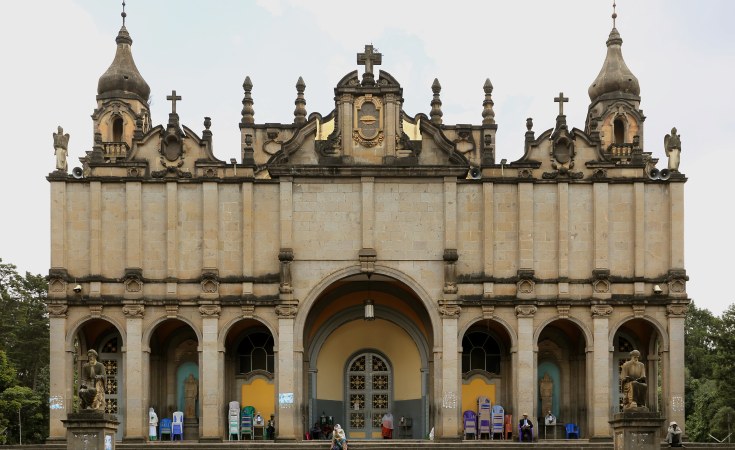Addis Abeba — The Ethiopian Orthodox Tewahedo Church (EOTC) Holy Synod in Addis Abeba said that the agreement to resolve the schism that led to unrest in the country over the past weeks has been breached by the breakaway group two days after it was reached.
Abune Abreham, general manager of the Holy Synod said in a statement on Friday that the three Archbishops who according to the agreement reached on Wednesday were to return to their former dioceses and titles violated the agreement by addressing the media using a name "the new synod".
The three Archbishops and 25 episcopate ordained by them in a presser subsequent to the agreement said on Friday that they accept the agreement reached in its entirety but expressed dissent on the agreement point which says the episcopate ordained by the three archbishops would return to their former ranks.
They said revoking the anointment which was made according to the church's canon is against the canon itself and that the anointment should be upheld.
Abune Abreham said that "despite knowing that the episcopate anointment was annulled by the agreement, they violated the agreement by wearing the robe of sanctity and those who were part of the agreement altogether violated the canon again".
On the Wednesday's agreement, which was reached in the absence of Prime Minister Abiy Ahmed, it was decided that the three archbishops, Abune Sawiros, Abune Eostatheos and Abune Zena Markos, would return to their former dioceses and titles, and that the episcopate ordained by them would also return to their former ranks on the account that those who meet the church's laws and regulations will be reappointed by the Holy Synod.
The two groups had also reached a consensus to work together on the issues of language and diversity within the church's services which led to the schism in the first place.
Background
On 26 January the principal Holy Synod of the EOTC excommunicated three breakaway Archbishops and 25 appointee episcopate accusing them of involving in "illegal anointment" without the knowledge of the church. On Saturday 28 January, the three archbishops and 25 episcopate also excommunicated 12 Archbishops of EOTC Holy Synod members in a countermeasure, followed by dispatching over the weekend, bishops to their assigned dioceses.
The event that led to what has now potentially become a split of the EOTC happened at the Haro Beale Wold Church in Woliso city of the South-West Shoa zone in Oromia Regional State, on 22 January, where His Holiness Abune Sawiros (PhD), Archbishop of South West Shoa Diocese, together with two other Archbishops, appointed 26 bishops: 17 bishops for dioceses located in the Oromia region, and nine bishops for dioceses outside Oromia without the involvement of the Holy Synod, creating widespread shock and anger among many of the church's followers.
His Holiness Abune Sawiros explained the decision to appoint the 26 episcopate was made to resolve long lasting problems within the church for failing to serve believers in their native languages and detached of their culture, which resulted in loss of millions of believers over the past years particularly in Oromia and Southern region.
Following Prime Minister Abiy Ahmed's remarks in which he weighed in with a call for dialogue and remarked on the schism saying that it was "possible to resolve it without suppressing people's right and demand to use one's own language, the tensions between the Holy Synod in Addis Abeba and the government were heightened.
The Holy Synod slammed the PM's remarks, and accused the government of direct involvement in the crisis and called on faithfuls to wear black for three days in protest of the government's position.
On 04 February, clashes lash between followers of Orthodox Christianity and the local police in West Arsi zone, Shashemene city of the Oromia Region "claimed the lives of many people." The clashes erupted at St. Michael Church during a reception ceremony for members clergy appointed by the new "Holy Synod of Oromia and Nations and Nationalities."
The Ethiopian Human Rights Commission (EHRC) said in a report that eight people were killed following "excessive use of force" by government security forces during the clashes.
A nationwide protest rally which was planned for 12 February was called off after church leaders discussed with the PM on 11 Saturday leading to the agreement that was reached on Wednesday and now in shambles. AS


